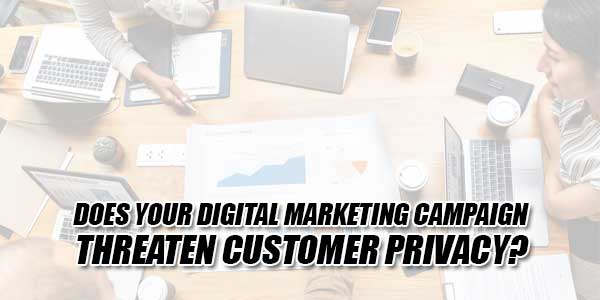
A recent explosive report from the technology e-zine, TechCrunch, revealed that Facebook paid teens to install a VPN that spied on its rivals. And that’s only the latest data privacy scandal the world’s largest social network has been involved in. Unlike before, consumers and regulators keep a keen eye on how businesses and social networks obtain and use consumer data.
Reports have shown that online users are concerned about privacy more than ever. These concerns could prevent potential customers from engaging in user-generated content events or even subscribing to a newsletter. Worst case scenario, brands could face legal ramifications in case customer data is exploited in any way. You may not know it, but your carefully thought-out digital marketing campaign could be violating consumer privacy laws.
Online data privacy breaches could be intentional on the part of the advertising company. Still, the repercussions for these misdemeanours are high. Therefore, read down below to learn about possible violations of user privacy and how to prevent data theft:
Table of Contents
No Privacy Policy, No Data Protection:
One of the most popular forms of digital marketing these days is the user-generated content campaign. While it’s true that consumers offer marketers or brands content of their own free will, that doesn’t mean the photos or videos provided belong to the company. For example, a follower may provide a photo of themselves possibly for a user-generated content contest. However, the marketers don’t have the right to use that photo later in advertisements or magazine spreads.
If a brand plans of repurposing user-created content, the affected users must be clearly informed. This is why marketers should have a clear privacy policy even for the smallest Facebook campaign. In addition to user-generated content, potential consumers may entrust their names, email addresses, and other such sensitive information in marketing campaigns. All such information should be kept safe to avoid lawsuits later on.
Markets can draft a basic privacy policy to avoid data breaches in the future. Disclose any information the campaign might repurpose early on. Users should be given the option to opt-out at any point. For online campaigns, look for the best social media agency to ensure consumer privacy without hindering marketing goals.

Don’t Push It: Address Consumer Fears:
Brands should assume that their target audience has legitimate online privacy concerns. Fears that marketers might steal their data may prevent potential customers from engaging with the brand online. It’s safe to assume that such fears are prevalent in this day and age.
Instead of shrugging off such fears, marketers and brands should ideally address them head on. There are steps marketers can take to alleviate such fears. For example, for a user-generated selfie campaign, assure consumers that their data would be kept safe and never repurposed. Such assurances should attract customers who may stay away because of privacy concerns. It also makes the brand look sensible and aware of customer feelings.
Be Careful About Involving Third-Party Operators:
Things can go seriously wrong when marketers rely on third-party operators in campaigns. The freewheeling times where user data was bought and sold is officially over. Despite popular beliefs, marketers don’t actually need highly private data to make a campaign successful. Most data-related advertising claims don’t have good grounding in marketing research anyway.
With that in mind, don’t let third-party operators handle user data without strong privacy protections. Customer data should be safeguarded like employee data at a business. If the third-party operator gets embroiled in a privacy scandal, the brand name would be dragged through the mud as well. Marketers should be especially careful here as client information could be entangled in long and complicated legal battles.
As a policy, it’s best to avoid data brokers and not rely on them at all when running digital marketing campaigns. There are better way to get access to useful potential customer data, such as by asking people for it. User-generated content is a good example, when such information is not exploited.
In summary, data privacy is important now more than every when it comes to digital marketing. Online advertisers should address these concerns and take the necessary steps to protect data of customers and potential customers. This might even be a necessity as regulators eye stricter controls on online data privacy.


















Be the first to write a comment.